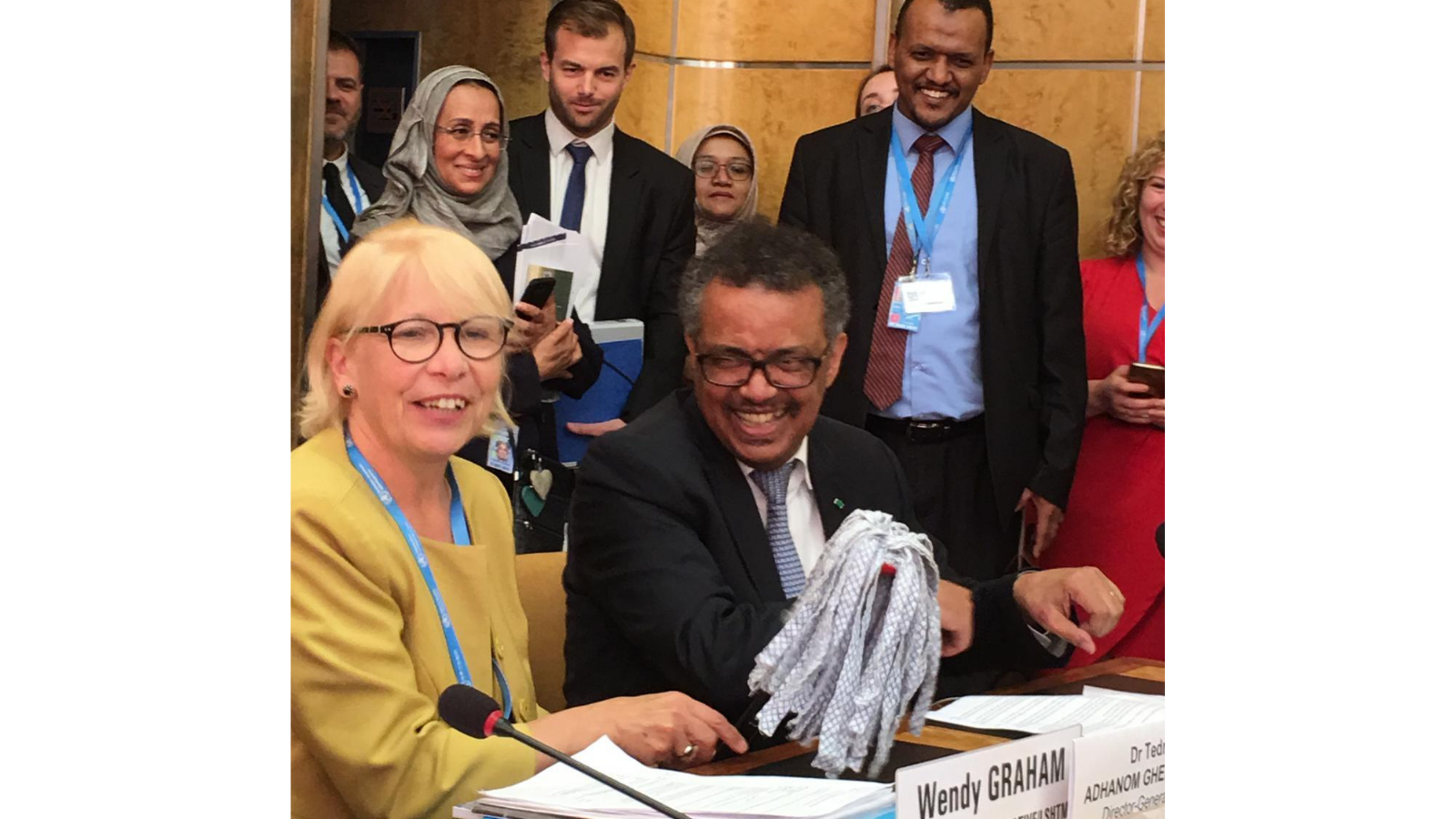Why hygiene is in our name and research DNA
London School of Hygiene & Tropical Medicine https://lshtm.ac.uk/themes/custom/lshtm/images/lshtm-logo-black.png Thursday 22 July 2021
The London School of Hygiene & Tropical Medicine (LSHTM) has a long and prestigious history of continuity and change in its mission to improve health worldwide. Changes are often in response to new challenges – as exemplified by our pivotal role in the ongoing COVID-19 pandemic, which suddenly emerged in late 2019.
Changes also reflect progression in the leadership of the institution as witnessed in the current transition of the Directorship between Professor Peter Piot and Professor Liam Smeeth. Such a shift is significant and will bring further changes highlighted in the recent hand-over symposium - Celebrating LSHTM Global Partnerships.
But there will also be continuity of commitment to global health fit for the 21st century, and to the core areas of public health which have defined LSHTM for over 120 years. One of these is symbolised by the “H” in LSHTM – Hygiene.
The COVID-19 pandemic has brought global attention to the importance of hand hygiene, social hygiene (distancing) as well as extra precautions in healthcare environments. But of course these vital public health measures aren’t new, and neither is LSHTM’s leading role in hygiene research.
From John Snow’s discoveries on water supply and cholera to the Florence Nightingale’s foundational work on infection prevention and control (IPC), hygiene has been acknowledged in research and teaching at LSHTM as conducive to maintaining health and preventing disease.
Hygiene has been developed and explored over many years. It is now found across all Faculties and covers a wide variety of research areas, from Water, Sanitation and Hygiene (WASH) and menstrual hygiene to food hygiene and IPC at home, in schools, and in health care facilities, and linked to AMR.
Many of these fields apply diverse methods of enquiry and explore diverse levels – from microbes to policy. The establishment of the ‘Hygiene Hub’ in 2020 is a shining example of LSHTM’s work. More recently, LSHTM has played a key role in supporting the establishment of the new Reckitt Global Hygiene Institute to generate practical, evidence-based recommendations to achieve global hygiene excellence through improved behaviours. This institute aims to address the crucial barrier of human willingness to practise good hygiene, which is as present today as it was over a century ago.
LSHTM is playing a key role in the response to the COVID-19 pandemic at multiple levels of research – modelling, vaccine development and roll out, strengthening health system resilience, supporting monitoring and surveillance, and boosting IPC. Our research activity has spanned different contexts within the United Kingdom and with partnerships in many low- and middle-income countries.
While some of the work has involved sophisticated technologies, analytical approaches and complex interventions, the hygiene component typically requires going back to basics – to simple, low-cost technologies. Mops, buckets and cloths rather than computers, microscopes and robotics. Supporting members of the health workforce – namely cleaners – not usually in the limelight is key.
Hardly rocket science, yet evidence on the importance of environmental hygiene in healthcare facilities is older than LSHTM itself.
It perhaps seems strange for a premier research institution to be active in the 'cleaning space', but this has indeed been the focus of a small team which I have had the pleasure to lead in the Department of Infectious Disease Epidemiology for the past eight years. Specialising on maternity and neonatal units where the risks from healthcare-associated infections are often particularly high, our group has revealed the urgent need to improve environmental cleaning in healthcare facilities in a large number of country contexts.
We continue to work with international agencies to ensure indicators on cleaning are added to major monitoring systems for WASH, and have brought cleaning to the attention of the World Health Assembly and the World Health Organization’s Director General.
The team have also developed a participatory package for training cleaners. An evaluation of this package was completed in Dar es Salaam, Tanzania, and the results shared recently in a paper led by Dr Giorgia Gon published in Antimicrobial Resistance & Infection Control.
The study found that improvements in microbiological cleanliness are possible using this training intervention and can be sustained. We found cleanliness of high-risk hand-touch sites improved in the maternity wards, as measured by aerobic colony counts, with only 19% of sites sampled meeting hygiene standards in the pre-training period, rising to 41% post-training.
The study also found important implementation challenges, such as restrictions on the number of training sessions at the hospital level, the lack of supportive supervision, and irregular cleaning supplies. Practical options for reducing these barriers are now being explored in follow-on research.
The ground-breaking nature of this work is acknowledged by WHO’s request to use the package as the basis for their own global training initiative being launched in the autumn, and indicates the commitment at LSHTM to use our expertise to ensure the basics are not forgotten.
LSHTM continues to be at the forefront of influential research and learning for global health. In this privileged role, it is important that it seeks to strengthen the evidence base for both sophisticated and down-to-earth interventions, and to build the next generation of influencers who can promote both these needs.
And in the words of our incoming Director, Professor Liam Smeeth: “Continuing with a back to basics approach is essential for LSHTM and for global health. We need to promote and practise this mantra – locally and globally”.
LSHTM's short courses provide opportunities to study specialised topics across a broad range of public and global health fields. From AMR to vaccines, travel medicine to clinical trials, and modelling to malaria, refresh your skills and join one of our short courses today.